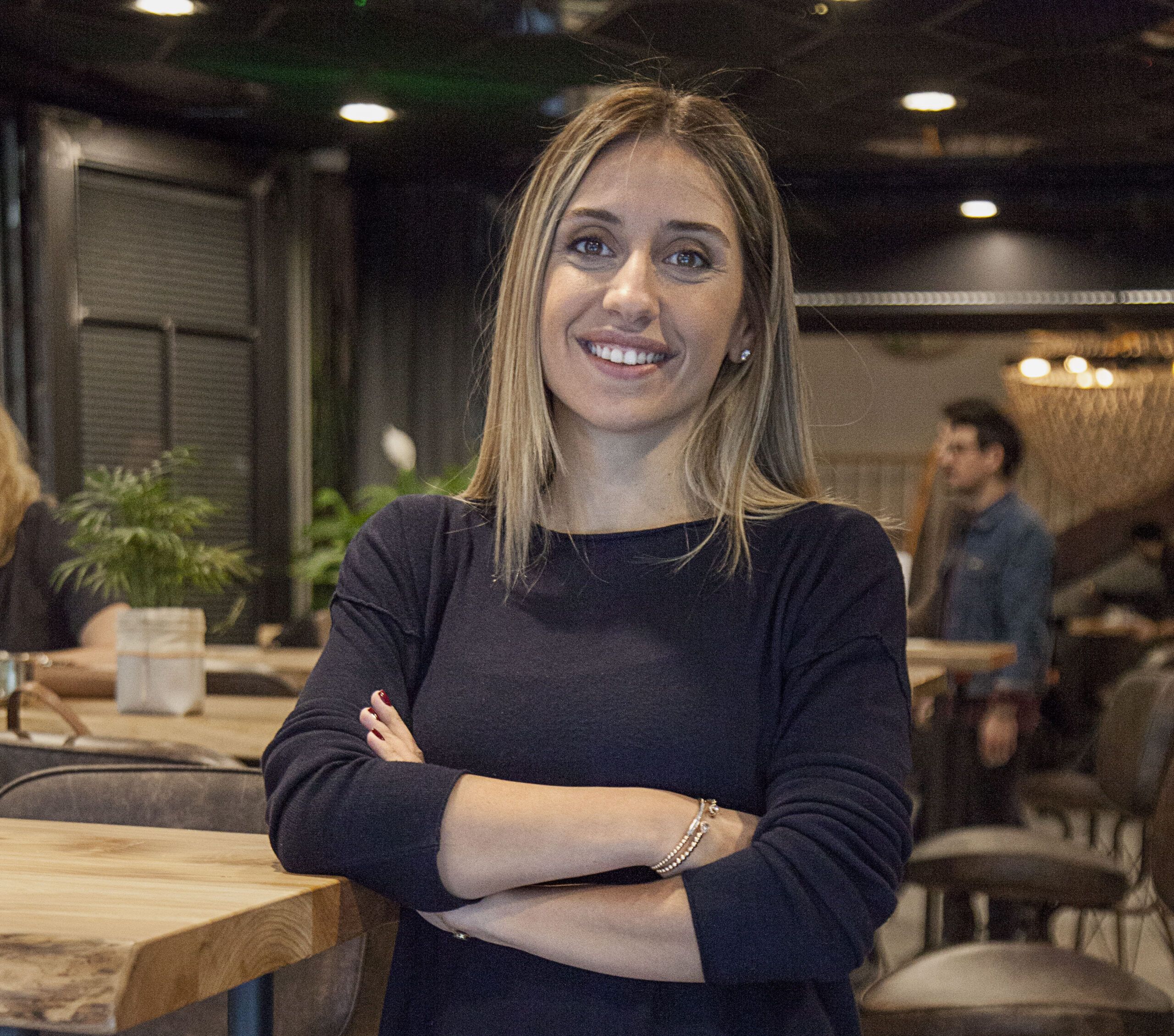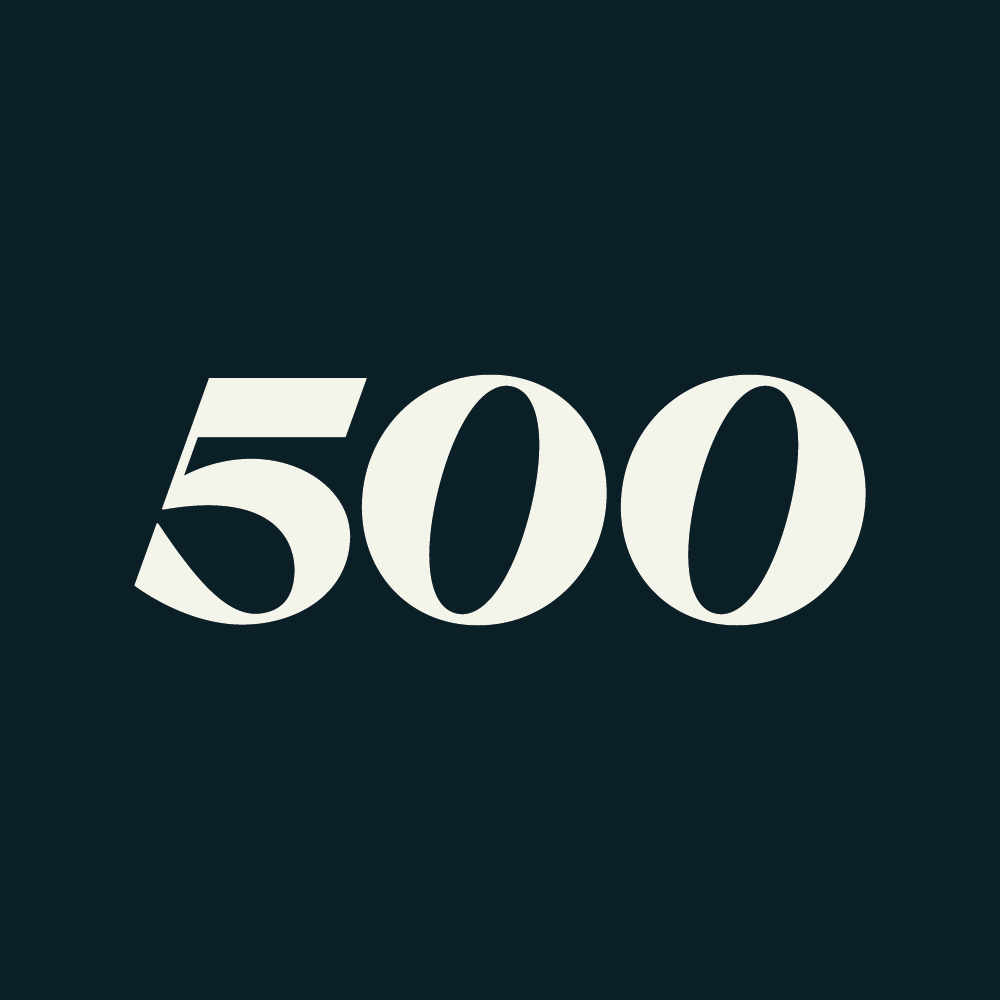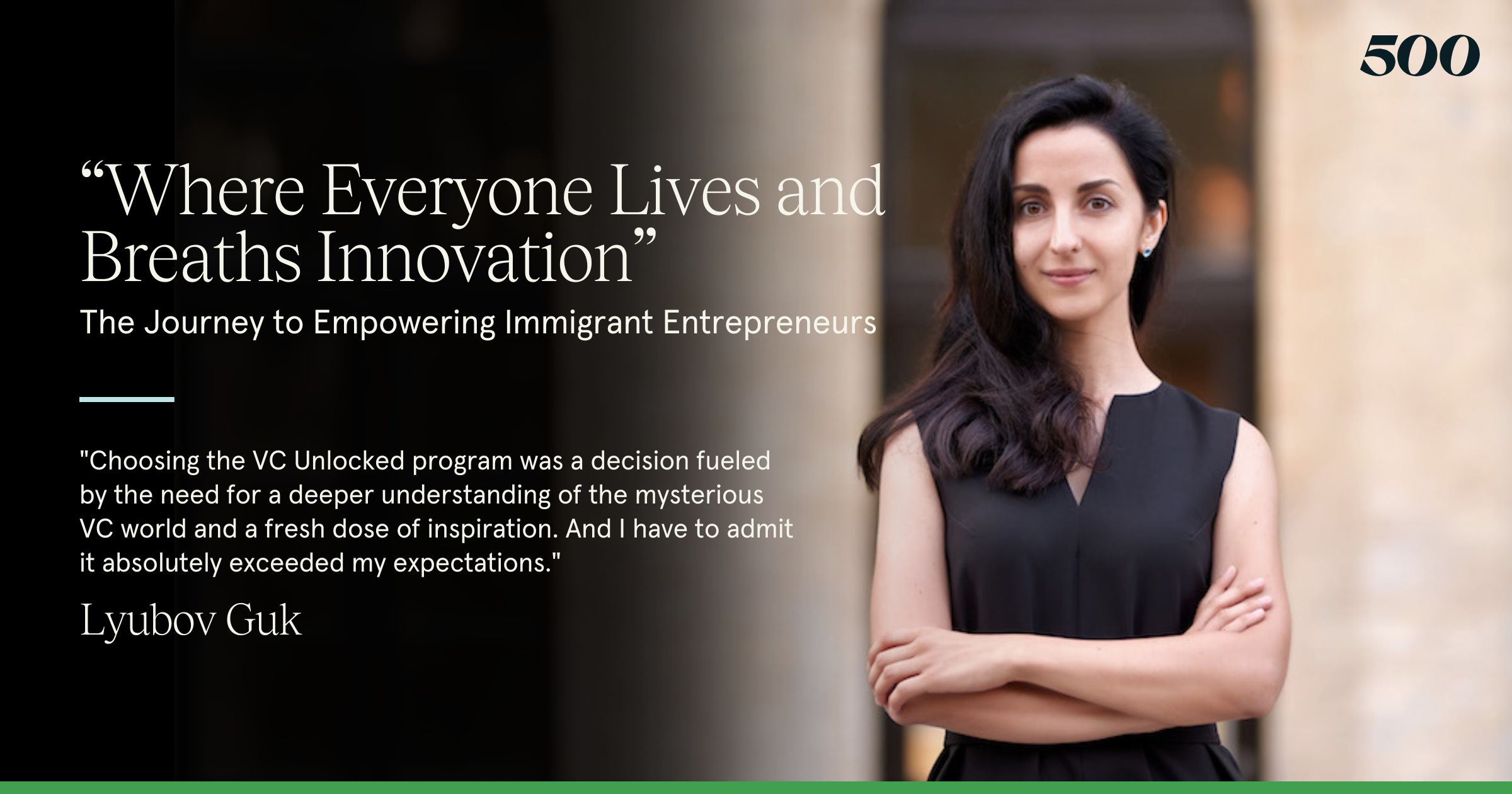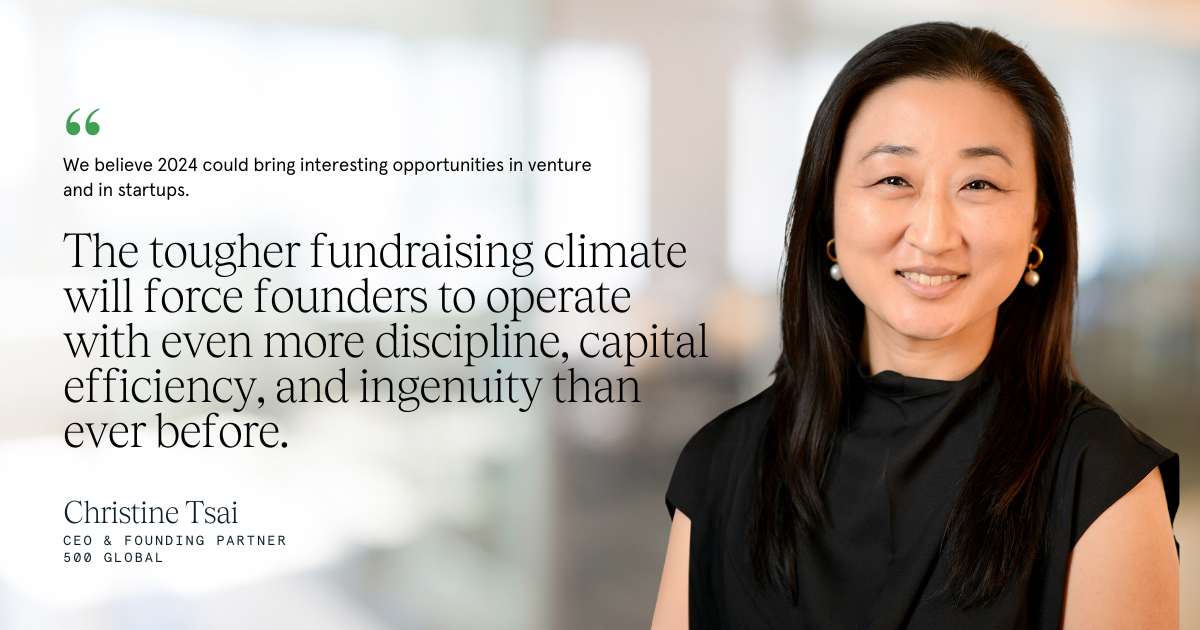
Rina co-founded and exited from Peak Games (a leading mobile social gaming company) and Hemenkiralik.com (first vacation rental network of Turkey). She is the General Partner of 500 Istanbul, 500’s thematic fund focused on backing exciting startups from Turkey/Turkic region and the diaspora. Starting out as a PE investor, then turned entrepreneur, she has made it full-circle back to the “dark side.”
Why did you join 500?
I started two companies in Turkey before I became an early stage investor and joined 500. I built my first company when I was 24 years old. Along the way, I met incredible people including a couple of investors who took a huge bet on a young, first-time female entrepreneur from an emerging market. If it wasn’t for their leap of faith, the funding, support, and mentorship that ensued, I probably wouldn’t have been able to live the story that I did. I always knew I had the desire to give back and help entrepreneurs in some capacity down the road.
I love 500’s mission because we’re ready to look at “odd” places in the world or “unorthodox” or diverse entrepreneur profiles to find good businesses. I love working with young teams and early products, which also falls within 500’s risk appetite.
Given all of this, 500 seemed like a great fit, both in terms of mission and culture for what I wanted to do in the Turkish startup ecosystem or for Turkish entrepreneurs.
You raised $15M for 500 Istanbul. What lessons did you learn during the fundraising process and what advice would you offer aspiring VCs?
I raised over $65M for two of my companies in under three years, so I think I completely underestimated the effort it requires to fundraise for a fund. It is an incredibly different story because for companies and startups, your teams or your technology usually speak for themselves. You can present a clear story around differentiation and defensibility.
With a fund (especially a first-time one), your team size is limited, you have no track record and excluding the cases of incredibly focused mandates, what you are pitching sounds quite similar to all the other GPs out there. In addition to that, seed funding in VC has been steadily increasing over the past decade, and the appetite for backing first-time fund managers from institutional LPs has not caught up.
I think we’ve been very lucky in pitching a story and investment mandate that is quite niche. Although it limits the number of people we can talk to, even from a mere interest level, it paints an extremely clear picture around our mandate, our strengths and ultimately our audience. I would recommend any first-time fund manager to focus on what makes their investment mandate different from all the others out there and how the team they’ve assembled is well equipped to undertake that mandate better than peers/competitors.
After you have your story (or your sales pitch) down, be very deliberate on who you approach and qualify your leads quickly to understand whether their interests align with what you have to offer. The worst thing you can do is waste time on the wrong LP leads due to the fear of hearing “no.” As we tell our founders, hearing a fast “no” is so much better than no response.
500 Istanbul invests in entrepreneurs from Turkey and the broader region. What are some recent deals/portfolio companies that you’re excited about?
This is always an almost impossible question to answer – similar to asking a parent to pick a favorite child! Since its inception, 500 Istanbul has invested in 35 companies ranging from healthtech to FinTech to B2B or SaaS. We feel excited about a lot of our teams; that’s why we backed them in the first place. However, there are some products that mature at a different pace than others and succeed in making third parties (investors, partners etc) excited about them as well.
Some of these companies are FireFly (a hardware enabled dynamic advertising platform targeting the ride-sharing vehicles), Carbon (founded by the co-founder of Udemy, now tackling the problem of trying to make comprehensive healthcare accessible to all), Averon (a blockchain-based mobile identity and security platform), Insider (one of the fastest growing growth management platforms globally for digital marketers) and BilliontoOne (a fresh take on non-invasive prenatal testing).
What are some of the trends you’re seeing in the Turkish market?
One of the rising trends in Turkey for the past few years is the realization that the founders should be moving from “me too” businesses to unique solutions for larger problems that could be experienced regionally or globally. This automatically increases the target market for any Turkish business from 80 million to a potential 8 billion people.
A few years back, the Turkish startup ecosystem was thriving with local Amazons, Ubers and Airbnbs. Now we have local teams using the more affordable (but equally talented) local human capital to create global success stories, similar to the Israeli model. Most of these teams are multi-national; they have strong development offices in Turkey, but their sales and business development teams could be based in Silicon Valley, London, Dubai or Singapore depending on which market they’re after.
How does D&I factor into a geographically-focused fund? what does diversity mean in Turkey?
We’re getting used to talking about D&I in the US, especially in Silicon Valley, but often times the problem is much bigger in different parts of the world. When I was a young investment professional at a PE fund prior to becoming an entrepreneur, I was used to being the only woman in meetings with middle-aged men holding board positions or partnership roles at other funds. There were times when I was asked to “bring in the coffee” in the beginning of a meeting, because someone thought I was a male partner’s EA.
Growing up an Armenian Turk in Istanbul, I’ve belonged to a very small minority community in Turkey all my life. During the fundraising DD processes for Peak Games (the first company I co-founded when I was 24), there was a running joke that I wasn’t allowed to date, get married or have kids for the following 2 years. Back then, I learned to turn a blind eye and keep moving forward to focus on what I wanted to accomplish personally, but now I feel I have more resources to have an impact.
I think we’re just on the verge of starting to think about these issues in Turkey. I’m the only female GP in Turkey at actively investing VC and PE funds. 30% of 500 Istanbul’s portfolio is led by at least one female co-founder and in majority of the cases, that co-founder is the CEO. Our mission is to increase this figure continuously and give more chances to under-represented groups in our region.
How do you look at global opportunities with founders?
As I’ve said earlier, “going global” is becoming a widespread phenomenon in Turkey: building locally, but serving globally has worked well for some early stage teams like Sinemia or Insider.
88% of our current portfolio is focused on companies providing services globally or at least regionally. This is possible due to the high-quality talent level in Turkey paired with extreme affordability. If you’re an early-stage team trying to survive on minimal seed funding, this gives you a significant leg up compared to international competitors.
When we look at global opportunities from our market, we focus on 3 main areas – the 3 T’s.
- Team – Is this a team that has the chops to pull this off and face whatever challenges that’ll be thrown in their way in the next 10 years?
- Technology – Is this a product that excites us — and their early customers/users– and is clearly differentiated from others in the market? Do they have a chance at winning the game?
- Target market – Is this a big enough of a market and if it is, what does the competitive landscape look like in comparison to this team (tying back into technology and differentiation).
You’ve been on both sides of the table as a founder and a VC. Can you talk about some of the challenges of transitioning from an operator to an investor?
A common pitfall for a lot of investors who haven’t had operational experience is the belief that we should be actively involved in a way a company is managed, or that we would have significant impact on their ultimate fate.
Our main responsibility to our founders is to provide resources for their success. It could be capital, introductions to relevant parties, recruiting leads, a sounding board for thinking out loud, and more frequently than not, a calming voice.
The biggest challenge of transitioning from an operating role to an investor is to get in the routine of a “pull” relationship, not a “push.” I want to be available to my founders whenever they need me, in whatever capacity I can be helpful to them, but also refrain from being too present and distracting. Managing to achieve that balance, while also not being too negligent is the main challenge.
What’s the most common mistake you see founders make?
Many founders fail to focus on product differentiation when they’re first starting off or even pitching to investors. No one wants to work for the tenth best startup in one particular category, nor do investors want to back those teams. You have to understand what your unfair advantage is, and this has to be more than a mere additional feature in a massive product. Founding teams need to use this unfair advantage in creating an ethos around the company. This helps with fundraising, recruiting and also getting your first customers.
I also see many early teams completely forego the time that is required to build a strong company culture. We’re so focused on product and putting out the early fires that we don’t look at who we are, what we offer and who we recruit to join our adventure. If not taken seriously from the beginning, culture becomes harder to fix as time goes by.
In order to recruit the best and the most dedicated team for your company, what you need more than money is the ability to convey a feeling of mission, belonging and impact to your future teammates. Think about company culture with every hire and continue to think about it every time you engage with your audience and customers.
Anything else you want to share?
We’re always looking for dynamic teams from Turkey/Turkic region and the diaspora. We’ve also made multiple investments in Eastern Europe, due to the physical proximity and the abundance of interesting opportunities we see from the region. If you’re working on a widely scalable idea that is targeting a significant market and looking for seed funding from our part of the world, please give us a shout-out at http://www.500istanbul.co/



